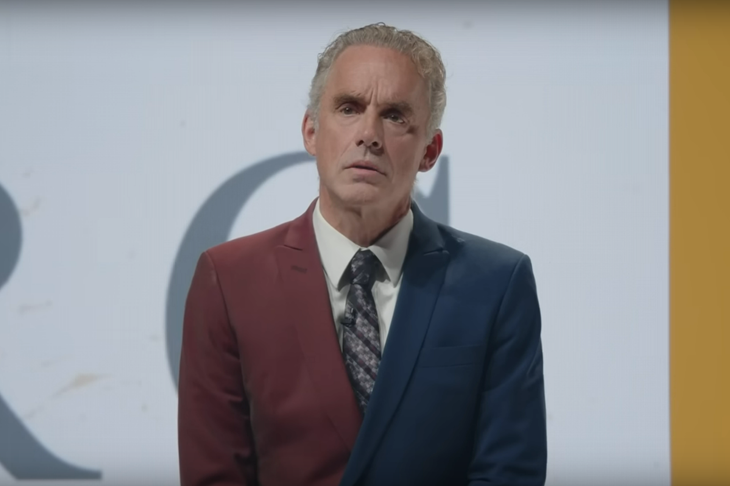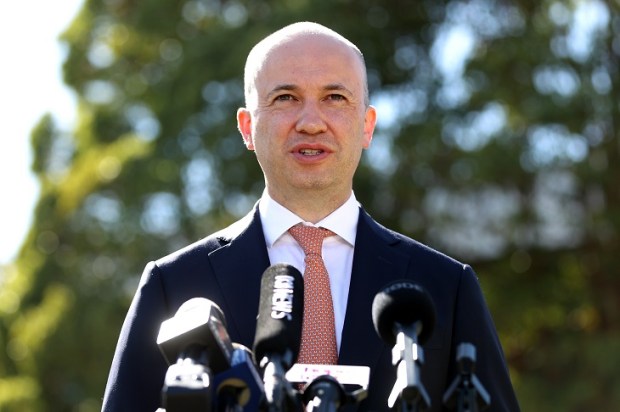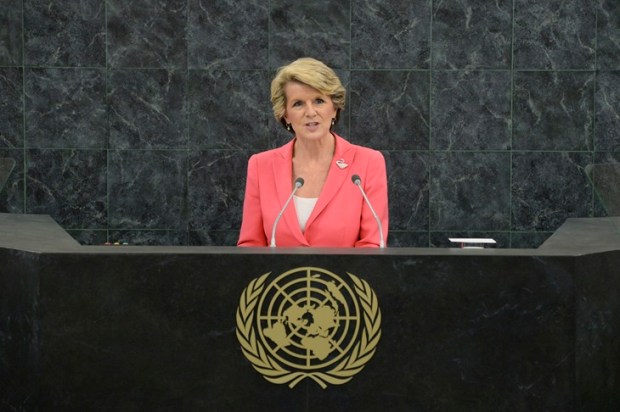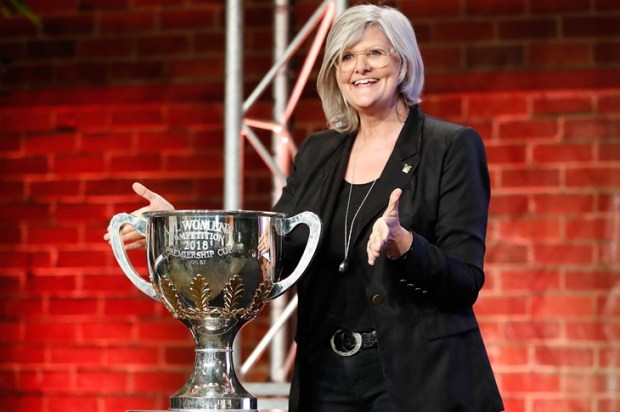An audience of movers and shakers from around the world roared with laughter in London this week during a talk by comedian and social commentator Konstantin Kisin. Kisin described a game he plays with his 18-month-old son, who while being held by his father will point in the direction where he wants his father to walk.
‘And if I don’t act quickly enough or if I don’t comply he does what all toddlers do, he throws a tantrum and starts screaming, “How dare you! You have stolen my dreams with your empty words!” And when he does we read him a story and put him to bed. We don’t give him a standing ovation at the UN.’
Greta Thunberg accused the whole Baby-Boomer generation of stealing her generation’s dreams and childhoods in her famous 2019 UN speech. In both speeches, Thunberg’s and Kisin’s, the audience couldn’t get enough.
A spectre has haunted London this past week. 1,500 influential people from 73 countries in fields ranging from business, law, media, academia, NGOs, entertainment and the arts converged in Greenwich for the inaugural Alliance for Responsible Citizenship (ARC) conference. Described by Jordan Peterson, one of its founders, as an ‘anti-Davos’ conference, ARC’s positive mission is to promote a revival of appreciation of the best of Western Civilisation in the face of its cultured despisers – Woke corporations, politicians, and intellectuals. ARC is pro-nuclear energy, pro-capitalism, pro-family, pro-child, pro-Christianity, pro-freedom of speech and religion, and pro-traditional education.
Rather than conjuring the usual moral panics around racism and gender inequality that most conferences on issues facing modern society offer, ARC refreshingly took seriously the real challenges faced by young citizens in Western democracies, particularly housing affordability and the legacy of broken homes and absent parents.
In the opening session, former Deputy Prime Minister of Australia the Hon John Anderson, spoke of the hollowness of calls to young citizens to reject socialism while their economy locks them out of the housing market and meaningful asset ownership. Whereas Marx said the solution to property inequality was to abolish private property, Anderson said it was to make homeownership possible for everyone again. The major problem was a shift in thinking about homes that took place from the 1990s, seeing them as assets to accumulate rather than as homes within which to raise a family. Now a house-rich and politically powerful older generation has a vested interest in prices remaining high.
One emphasis of the conference was not so much on children’s rights but on children’s wellbeing. Erica Komisar, who researches child mental health pointed to the overwhelming research indicating the negative impacts on children of being placed in childcare before the age of three. The solution wasn’t a return to the past where women don’t work, but for workplace reform so that women can be present for their children in their most crucial years of development without being locked out of their careers. Author Katy Faust pointed to the myriad studies of the long-term impacts on children of broken homes.
American social psychologist Jonathan Haidt spoke of the origins of the mental health crisis among adolescents, tracking it largely to the introduction of the smartphone ten years ago with its devastating impact on children’s ability to master delayed gratification and be inducted into the complex, challenging, but rewarding world of interpersonal relations. As American scholar and author Warren Farrell reminded the conference, the single most decisive variable determining whether or not children can become functioning adults is their capacity for delayed gratification.
The youth find it exceedingly difficult to cultivate the intellectual virtues provided by a rigorous education, are bombarded with digital media making delayed gratification near impossible, denied the emotional and mental stability that comes from being brought up in intact families, and denied the realistic ability to go out and work, save, and take on the responsibility of property ownership and starting families.
As Jordan Peterson stressed in his conference-closing speech, to be an adult is to have a cross to carry, and to be able to help others carry theirs. To have this responsibility is what distinguishes the child from the adult. It is the denial to so many Western youths of the economic, vocational, and intellectual conditions that allow for meaningful, rewarding responsibility that most illuminate where the modern West is going wrong.
When Greta Thunburg accused the UN delegates of stealing her generation’s childhoods, she was half right. The ARC conference presentations all suggest that Generation Z and many Millennials have been robbed, but not of their childhoods.
The children of the early Industrial Revolution and many children today living in the world’s poorest countries may justifiably lament a lost childhood. But, if anything, Thunburg’s generation has been given an abundance of childhood and kept in an infantalised world of instant gratification, emotion over feeling, and dependence on parents, landlords, and, during the Covid lockdowns when their jobs were cancelled, the government. It is their adulthood that has been stolen, as mature intellectual virtues have not been sufficiently inculcated in them, and the responsibilities of adulthood are increasingly hard for them to participate in.
The dominating topics at ARC were restoring faith in Western Civilisation, the virtues of nuclear energy, the importance of faith and transcendence to a flourishing society, the centrality of healthy businesses in lifting countries out of poverty, the ideal of civil society managing social problems, and an excessive emphasis on selfish individualism that has led to social atomisation and a mental health crisis.
ARC’s strength is that it boldly says what other conferences of elites dare not say, that the progressive, Woke spirit of the times is poison to our civilisation. Time will tell whether ARC and its networks will be the beginning of an effective civilisational redirection.
Stephen Chavura is Senior Lecturer at Campion College, Sydney. He attended the ARC conference in London.
Got something to add? Join the discussion and comment below.
Get 10 issues for just $10
Subscribe to The Spectator Australia today for the next 10 magazine issues, plus full online access, for just $10.


























Comments
Don't miss out
Join the conversation with other Spectator Australia readers. Subscribe to leave a comment.
SUBSCRIBEAlready a subscriber? Log in